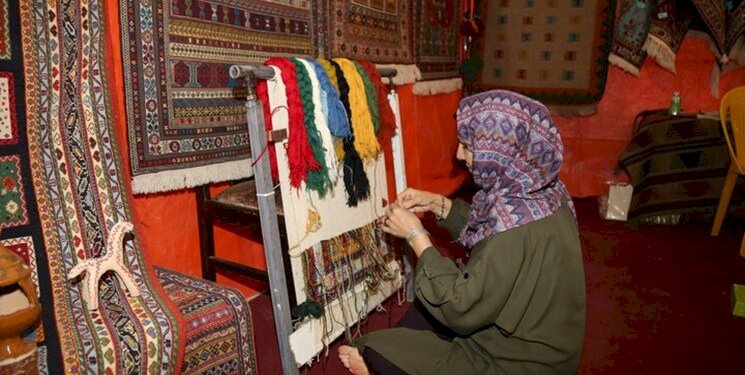Handicrafts center to open in Dishmok

TEHRAN - A house of handicrafts is planned to be established in Dishmok, a mountainous town in Kohgiluyeh and Boyer-Ahmad province, the deputy provincial tourism chief has announced.
Covering an area of 400 square meters, the center aims at reviving the art of weaving Kilim-Mashteh (a kind of hand-woven kilim), which was once one of the main crafts in the region, as well as organizing training courses in this field, Mohammad Kazem Rahmani said on Friday.
Dishmok is known for its historical fortress, whose basement and parts date back to the Sassanid era (224-651) and the main building to the Qajar period (1789-1925).
The southwestern province is known for its nomads and nomadic life. Sightseers may live with a nomadic or rural family for a while or enjoy an independent stay and assist them with day-to-day life. It also opens up an opportunity to feel rustic routines, their agriculture, traditions, arts, and culture.
Iranian handicrafts
With 14 entries, Iran ranks first globally for the number of cities and villages registered by the World Crafts Council, as China with seven entries, Chile with four, and India with three ones come next.
The value of Iran’s handicrafts exports stood at $120 million during the first eleven months of the past Iranian calendar year 1399 (March 20, 2020 – February 18, 2021), Mehr reported. The country’s handicrafts exports slumped during the mentioned months in comparison to the same period last a year earlier due to the damage the coronavirus pandemic has inflicted on global trade.
The Islamic Republic exported $427 million worth of handicrafts during the first eleven months of the calendar year 1398. Of the figure, some $190 million was earned via suitcase trade (allowed for customs-free and tax-free transfer) through 20 provinces, according to data compiled by the Ministry of Cultural Heritage, Tourism and Handicrafts.
Ceramics, pottery vessels, handwoven cloths as well as personal ornamentations with precious and semi-precious gemstones are traditionally exported to Iraq, Afghanistan, Germany, the U.S., the UK, and other countries.
ABU/AFM

Leave a Comment